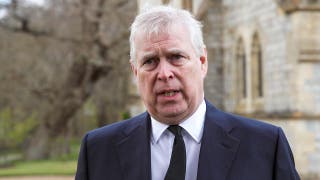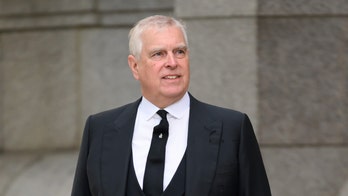
Nov. 10, 2014. Mark Wahlberg arrives at the 2014 AFI Fest - "The Gambler," in Los Angeles. (The Associated Press)
Actor Mark Wahlberg's plea for a pardon has focused fresh attention on excusing criminal acts — something governors rarely do because it's so politically risky.
Massachusetts hasn't approved a pardon in more than a decade. Republican Mitt Romney didn't pardon anyone before he left as governor in 2007. Only now, in the twilight of his eight years in office, has Democratic Gov. Deval Patrick recommended any pardons.
"It's hard politics to get pardons before the Governor's Council," Patrick said, referring to the elected body that has the final say.
Patrick, long an outspoken advocate of giving second chances, has thrown his support behind four pardons and a commutation as he prepares to turn the office over to Republican Gov.-elect Charlie Baker. If approved, they would be the first pardons in Massachusetts since 2002 and the first commuted sentence in 17 years.
Wahlberg isn't among them. His request, filed last month, is pending before the state parole board, which hasn't decided whether to grant a hearing or make a recommendation to the governor.
The A-list actor is seeking a pardon for violent assaults committed as a troubled teen in Boston in 1988, when he hit a Vietnamese man in the head with a wooden stick while trying to steal alcohol from a convenience and punched another man in the face while trying to avoid police. He was sentenced to three months in jail and served about 45 days.
In the request, Wahlberg said he dedicated himself to becoming a better person in his adult years so he could be a role model.
But his case — which has touched off a firestorm of criticism nationwide — underscores the bad politics that pardons can represent for someone like Patrick with potential presidential aspirations. Or, for that matter, for an incoming governor like Baker trying to get a new administration off the ground.
If the past is any guide, there's little to gain and a lot to lose.
Mike Huckabee's presidential aspirations were fouled in part by pardons during his time as Arkansas governor, including one in 2000 of a felon who later killed four Seattle-area police officers. Tim Pawlenty took flak for pardoning a Minnesota sex offender who was accused of reoffending in 2010, and later withdrew from the race for the GOP presidential nomination in 2012.
In 1995, then-Massachusetts Gov. William Weld commuted the sentence of a man who spent 23 years in jail for murder but won his release by telling how he'd become addicted to heroin while serving in the Vietnam War. Two years later, the man was sent back to prison after it was revealed he had lied about his service.
Even though the state's governors have been stingy with pardons, there's been no shortage of requests.
Since Patrick took office in 2007, there have been more than 900 pardon and commutation petitions have been filed with the board of pardons — including a surge in requests in the past year, in part due to new guidelines put into effect by the Patrick administration to make it easier to qualify for clemency.
The changes make commutations possible for those serving unduly harsh sentences, and allow pardons for those who can show they've made an extraordinary contribution to their community — a new twist that may have prompted Wahlberg to make his request. Under the old guidelines, applicants had to prove they needed the pardon to find work, or for some other compelling reason.
Among those Patrick is offering clemency is Deanne Hamilton, 49, who has served more than half of a 7½-year sentence for possession of cocaine with intent to distribute in a school zone. At the time, Hamilton was an addict living in an apartment located about 700 feet from a Brockton school.
If approved by the Governor's Council, Hamilton's would be the first commutation by a Massachusetts governor in 17 years and would make her eligible for parole.
Patrick also is recommending pardons for four people who've been out of prison for years — Jeffrey Snyder, Guy James Coraccio, Thomas Schoolcraft and True-See Allah —for offenses ranging from youthful criminal offenses such as larceny to armed assault, burglary and marijuana possession. They would be the first pardons since 2002, when Jane Swift was acting governor.













































